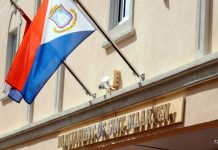“Let not talk about ideology and ideals; let us just focus on technical solutions”.
A strange feeling of déjà vu hit us when we heard these words. They were uttered by none other than Mr. Jeroen Dijsselbloem, the golden boy of the Dutch political establishment. For those who are unfamiliar with him, Dijsselbloem held the post of the Dutch Minister of Finance before being assigned the task of the president of the Eurogroup, which is the informal club of the financial ministers of those European countries that have adopted the Euro. Dijsselbloem is a man with experience, power, and know-how; a man who is in the loop; a man who expresses the mainstream sentiments of the movers and shakers (the global elite) of the world, so when Dijsselbloem speaks it is best to pay keen attention. We are witness to what we call the dominance of the technocratic unconscious—a seemingly value neutral way of seeing and arguing and solving matters, codified in textbooks, policy documents, trainings and workshops—that has become the common sense of persons who make it to top administrative functions in today’s globalizing world.
The words we just quoted at the beginning of this essay were taken from Dijsselbloem’s statements concerning the current situation in Greece. Greece’s misfortune, seeping unemployment, spiraling debt, corruption, etc.—we are just parroting what everyone can read in quality newspapers or hear and see explained on CNN—might seem far removed from our Sint Maarten reality. The overall unemployment in Greece amounts to more than 25%. When one zooms in on the youths the figure is almost 50%. And what is worse, out of every ten children you would meet in this European country, 4 live in poverty. If you add that in hospitals medicines are rare commodities, you understand how bleak the situation is. Most of us might not have it good, heaven knows we have our problems, but we do have it better than the Greeks.
Our depiction of the Greek situation may cause some of St. Maarteners to empathize and the more emotional to even shed a tear, yet even they may be susceptible to the rhetorical question of the tough hearted who ask, “What do we have to do with Greece”! They might find themselves agreeing outside their mantra “we are all God’s children talk” and “love they neighbor as thyself” that most of the energy of those with good will should be spent on what really matters to Sint Maarteners like say the CFT, and if they so wish to be regionally oriented then focus on the latest treatment of Dominican citizens of Haitian attraction in Santo Domingo.
Either or thinking combined with parochialism—if I focus on St. Maarten, I can’t focus on the rest of the world, and if I also focus on the Dominican Republic, Greece has to take a backseat—is rarely useful, and in this case it definitely isn’t. Such narrow-mindedness leads to partial blindness, a misconstruing of Sint Maarten’s current predicament, and ineffective action in the long run. It is wiser to recognize that in this interconnected world, the struggles for human dignity everywhere reflect and inflect each other.
The Greek saga, the Haitian-Dominicans plight, and our own coming to terms with CFT supervising the government’s budgeting practices have more in common than we expect. In fact by attending to the faraway and less obvious, in this case the social, economic, and political situation in Greece, and their response to the harsh measures they are told by the Jeroen Dijsselbloem’s of this world that they must accept, we might get a better sense of our particular situation.
To get into this habit of thinking global while acting local, we have to actually cultivate and train ourselves to stand still at our déjà vu moments. What happens during a déjà vu moment is that on an intuitive level you actually connect a new experience with your current situation and other developments that illicit your concern. This déjà vu happened to us, so we stopped to think through its consequences.
Dijsselbloem’s remark quoted at the beginning of this essay reminded us that, though unlike the French side of the island, Sint Maarten is linked to the risky experiment that begun in Western Europe in 1999. In that year France and the Netherlands joined several other European Union countries in a single currency zone that facilitated open markets. New transnational agencies (organizations operating above national governments) had to be put into place to regulate matters without fully impinging on the autonomy of these governments.
15 years later all recognize that this arrangement is quite unstable. The budget and tax policies are in the hands of the national governments, who aren’t international like the businesses that invest based upon the favorable conditions that these administrators of the members states offer, while the stability of the currency is supervised by the European Central Bank not able to unconditionally override decisions of the former or control these businesses. The transnational body that is supposed to regulate the currency cannot intervene in terms of managing the budget and tax compliance. Negotiations, mutual trust, transparency, and willingness by national governments to accept and implement the advices of transnational watchmen like the European Central Bank, while appeasing economic investors and businesses, is the name of the game. The juggling act national governments who are part of this monetary pact have to perform is how to reap the benefits of the Euro, remain appealing to businesses and foreign and local investors, and make sure the less fortunate in their respective societies are able to flourish.
The European Central Bank strengthened by the European Commission, the executive body of the EU consisting of delegates of the member states charged with making sure that all countries comply with the treaties, can exert pressure on national governments that jeopardize the economic pact. Moreover the International Monetary Fund (IMF), the transnational body that regulates who banks lend money to when countries are in a financial crisis, support the decisions of the European Central Bank and the European Commission. This transnational pact manned by no nonsense figures like Jeroen Dijsselbloem, imbued with a technocratic unconscious, make it next to impossible for national governments in the European Union to simply do as they please. Greece’s national leaders are today recognizing exactly how much their political independent status is being superseded by economic interdependence regulated by transnational agencies and supranational governments in the making. Their rebuttals of respect for their national sovereignty, democracy, and the reality of international banks and elites being privileged while the working poor suffer, are met by the technocratic remark “let’s not talk about ideology and ideals; let us just focus on technical solutions”; followed by the explication to cut government spending, privatize government owned companies, pay your bills, be more efficient with regards to tax compliance, and all will be fine.
Acknowledging the myriad of differences, it is not farfetched to contend that within the Kingdom of the Netherlands a similar strategy was employed as explained above by Dutch technocrats during the restructuring of the Netherlands Antilles on October the 10th 2010 (10-10-10). Sint Maarten and Curaçao became autonomous countries within the Kingdom (landen binnen het Koninkrijk), while Bonaire, Saba, and Sint Eustatius, the so-called BES islands, got the status of overseas municipalities in the making (Openbare Lichamen). With this facelift of the Dutch Kingdom, the College Financieel Toezicht (CFT) came into existence. Its task as a transnational agency is to supervise and guide the sustainable economic management of all these new entities (recently the sister island of Aruba, which gained its constituent state status in the 1980s, has also had to accept a CFT like body). When the governments of these constituent states of the Dutch Kingdom do not adequately balance the demands of the (inter)national business sectors, the needs and desires of the population, and Kingdom treaties regarding appropriate forms of budgeting and expenditures, the CFT appeals to the Kingdom Council of Ministers. Once they find the CFT’s analysis reasonable, this body consisting of the council of Ministers of the Netherlands complemented by the Minister Plenipotentiaries of Aruba, Curacao, and Sint Maarten, chaired by the Prime Minister in The Hague, can then instruct the constituent states in the Caribbean part of the Kingdom to comply.
So far much of the interaction between the CFT and the governments of Curacao, Sint Maarten, and Aruba, resemble those between the European technocrats and the Greek political leaders. For instance elected officials on Sint Maarten are being accused of incompetence, corruption, and holding the population hostage. When the government official respond by speaking about the colonial legacy influencing Dutch policy makers, or the faulty behavior of the warlords of businesses breathing down their necks, they are told something similar to “let’s not talk about ideology and ideals; let us just focus on technical solutions”; followed by the explication to cut government spending, privatize government owned companies, pay your bills, be more efficient with regards to tax compliance, and all will be fine.
If the political players in the Netherlands and the Dutch Caribbean isles cannot find a common language, whereby the budget is regulated without jeopardizing the working populations’ ability to flourish and achieve social mobility, we may face something that is underplayed in the media reporting on economic stricken Greece: rising xenophobia, fear and harassment of the newcomers (the immigrants). Like in the economically unstable Dominican Republic, in Greece too newcomers are blamed for all social malaise; without them all so-called “authentic” Greeks (oldcomers) would live a comfortable life; they are accused of stealing the fun and eroding the culture; they are harassed and treated as second class citizens; they are threatened with deportation by populist factions in government (all this persecution, we might add, bearing undeniable traces of colonial and other imperial stereotyping). Since none of us want that—and we know there as signs of such in all parts of the Kingdom—we will need to take seriously that perhaps the solution lies in democratizing upwards and downwards. Ordinary people need to feel that local governments, the Kingdom Council of Ministers, and the CFT, are accountable to them. That in other words, their lives and points of views, matter as much as the global movers and shakers. Technocratic language will have to be imbued with warmth that fosters human understanding.
Dr. Francio Guadeloupe, President, University of St. Martin
Mr. Erwin Wolthuis, Division Head of the Business & Hospitality Program
Mr. Josue Ferrol, Coordinator of the pre-USM program
Mr. Pedro de Weever, Lecturer in the Department of General Liberal Arts.
Ms. Sharelly Emanuelson, guest lecturer at the USM.






























